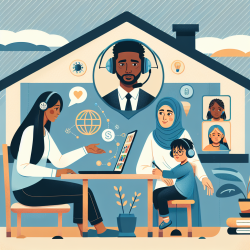As Speech Language Pathologists (SLPs) working within school settings, our role extends beyond therapy sessions to include active participation in Individualized Education Program (IEP) planning and meetings. These meetings are crucial touchpoints where we can advocate for our students, ensuring their unique needs are met, and setting the stage for their educational and mental health success. With the right approach, SLPs can maximize the impact of these meetings, fostering a collaborative environment where every child's potential is recognized and nurtured.
Understanding the IEP Process
The IEP process is a cornerstone of special education, designed to provide a tailored educational plan for students with disabilities. As SLPs, understanding the nuances of this process is essential. It begins with the evaluation of the student, leading to the development of an IEP that outlines specific educational goals, the rationale behind these goals, and the methods by which progress will be measured. Participation in this process not only allows us to share our specialized knowledge but also to gain insights from other professionals and the student's family.
Preparation is Key
Preparation for IEP meetings involves more than reviewing the student's file. It's about deeply understanding their strengths, challenges, and how their communication needs impact their learning and social interactions. Here are some strategies to ensure you're thoroughly prepared:
- Review past evaluations and progress reports to understand the student's journey.
- Engage with teachers and parents to gather comprehensive insights on the student's day-to-day challenges and achievements.
- Prepare specific examples of the student's work and progress to share during the meeting.
- Identify clear, achievable goals for the student, along with strategies to support these goals.
Collaboration and Communication
IEP meetings are collaborative efforts, bringing together a team of professionals and family members all focused on the student's success. Effective communication is key:
- Listen actively to the perspectives of all team members, valuing their contributions.
- Use clear, jargon-free language to explain assessment results and proposed strategies.
- Be open to feedback and alternative approaches, fostering a spirit of cooperation.
- Ensure that the student's voice is represented in the meeting, whether through direct participation or through input gathered beforehand.
Advocating for Mental Health and Therapy Needs
Incorporating considerations for mental health within the IEP is vital. As SLPs, we are in a unique position to observe how communication challenges can impact a student's mental health and social interactions. Advocating for integrated support that addresses both educational and mental health needs is essential. This might include:
- Recommending therapy services that support not only academic success but also social-emotional well-being.
- Highlighting the importance of mental health services, such as counseling, as part of the student's support network.
- Working with the team to ensure that mental health goals are included in the IEP, with clear strategies for support.
Navigating Challenges
IEP meetings can sometimes present challenges, from differing opinions among team members to constraints such as limited resources. Here are some strategies to navigate these challenges:
- Focus on the student's best interests, using evidence and professional expertise to support your recommendations.
- Seek to understand and address the concerns of parents and other team members, finding common ground.
- Be creative in proposing solutions, considering a range of supports and accommodations that can be tailored to the student's needs.
- Stay informed about the latest research and resources in speech-language pathology and special education, leveraging this knowledge to advocate for effective interventions.
Reflecting and Following Up
The work doesn't end when the IEP meeting concludes. Reflecting on the meeting's outcomes and maintaining open lines of communication with the team are critical steps:
- Review the finalized IEP document to ensure it accurately reflects the discussions and agreed-upon goals and strategies.
- Set up a system for monitoring the student's progress towards their IEP goals, including regular check-ins with teachers and parents.
- Be proactive in addressing any challenges that arise, adjusting strategies as needed to support the student's success.
IEP meetings are a pivotal part of our work as Speech Language Pathologists in schools. By approaching these meetings with thorough preparation, a collaborative mindset, and a commitment to advocating for our students' comprehensive needs, we can make a significant impact on their educational journey and overall well-being. Let's embrace these opportunities to make a difference, ensuring every child has the support they need to thrive.










